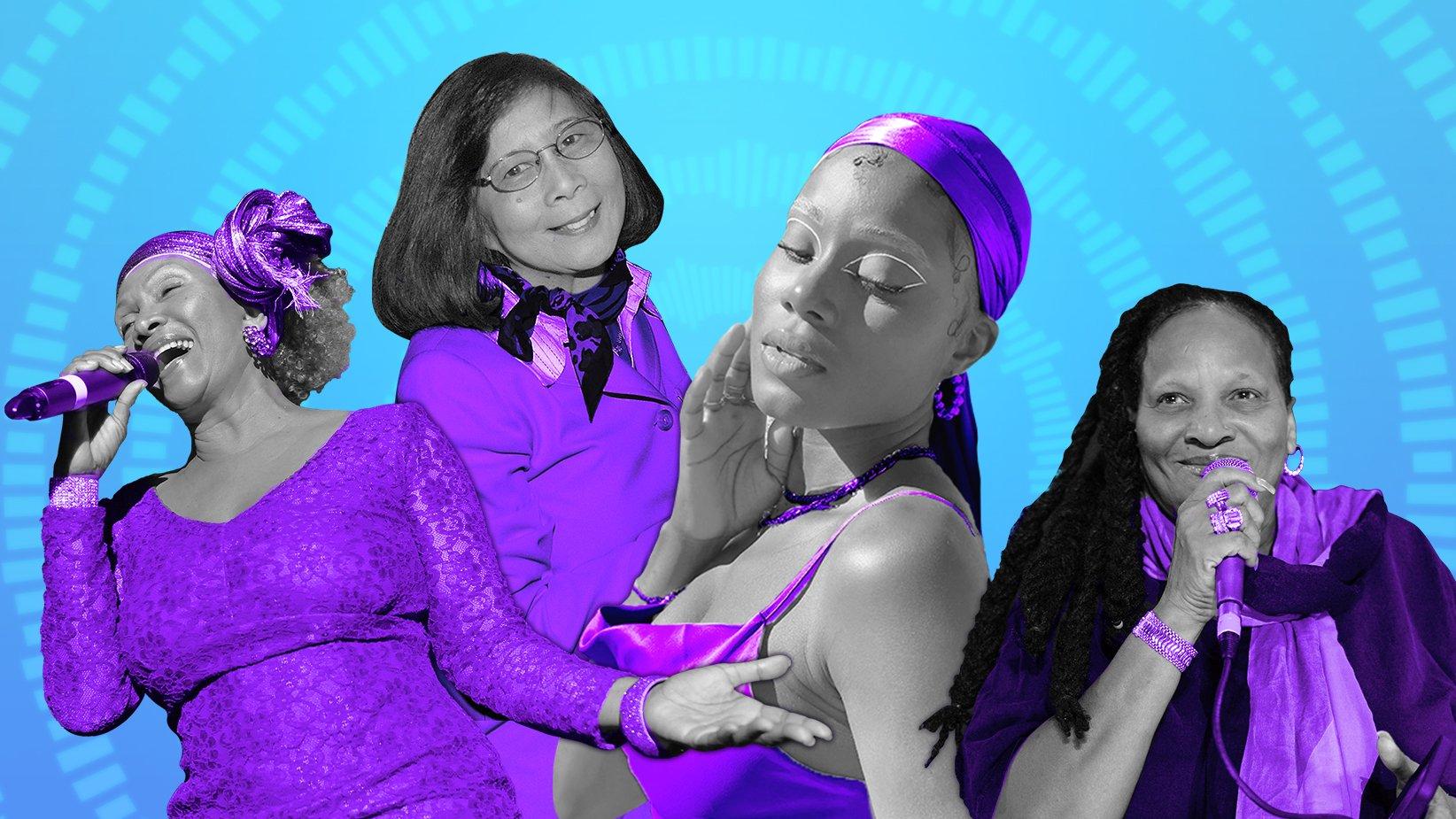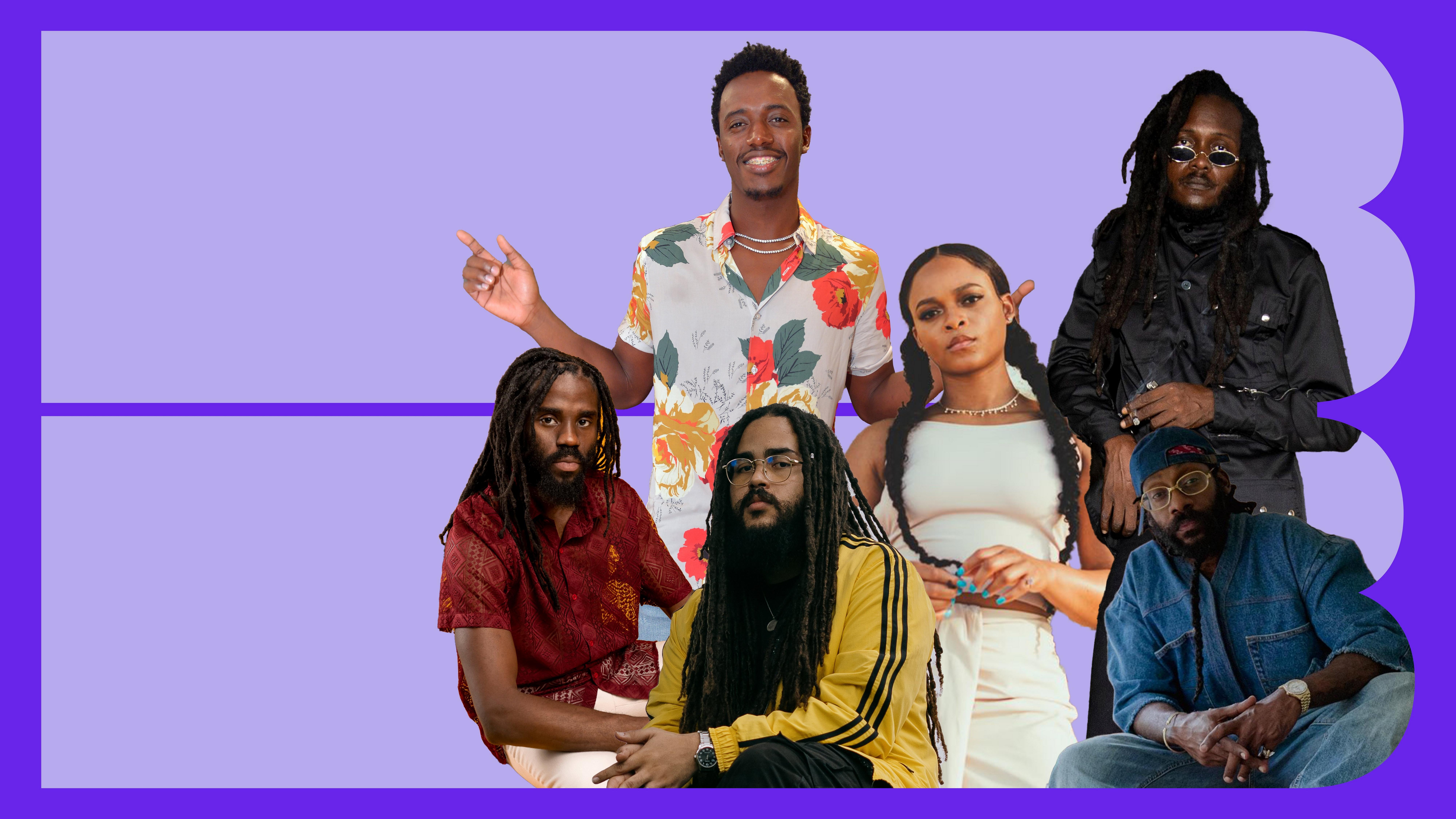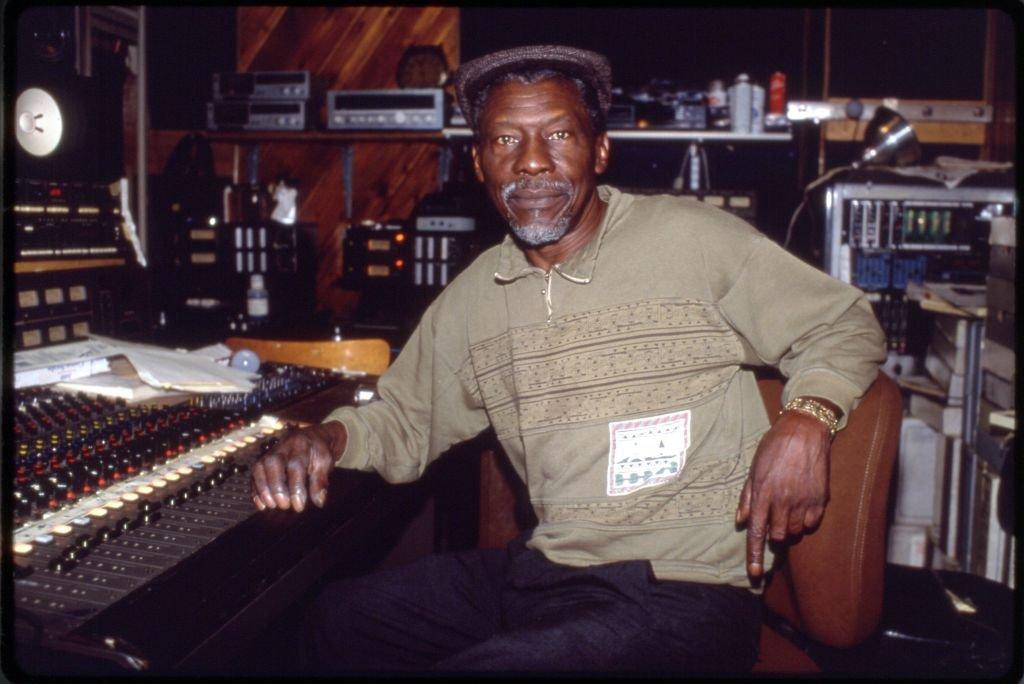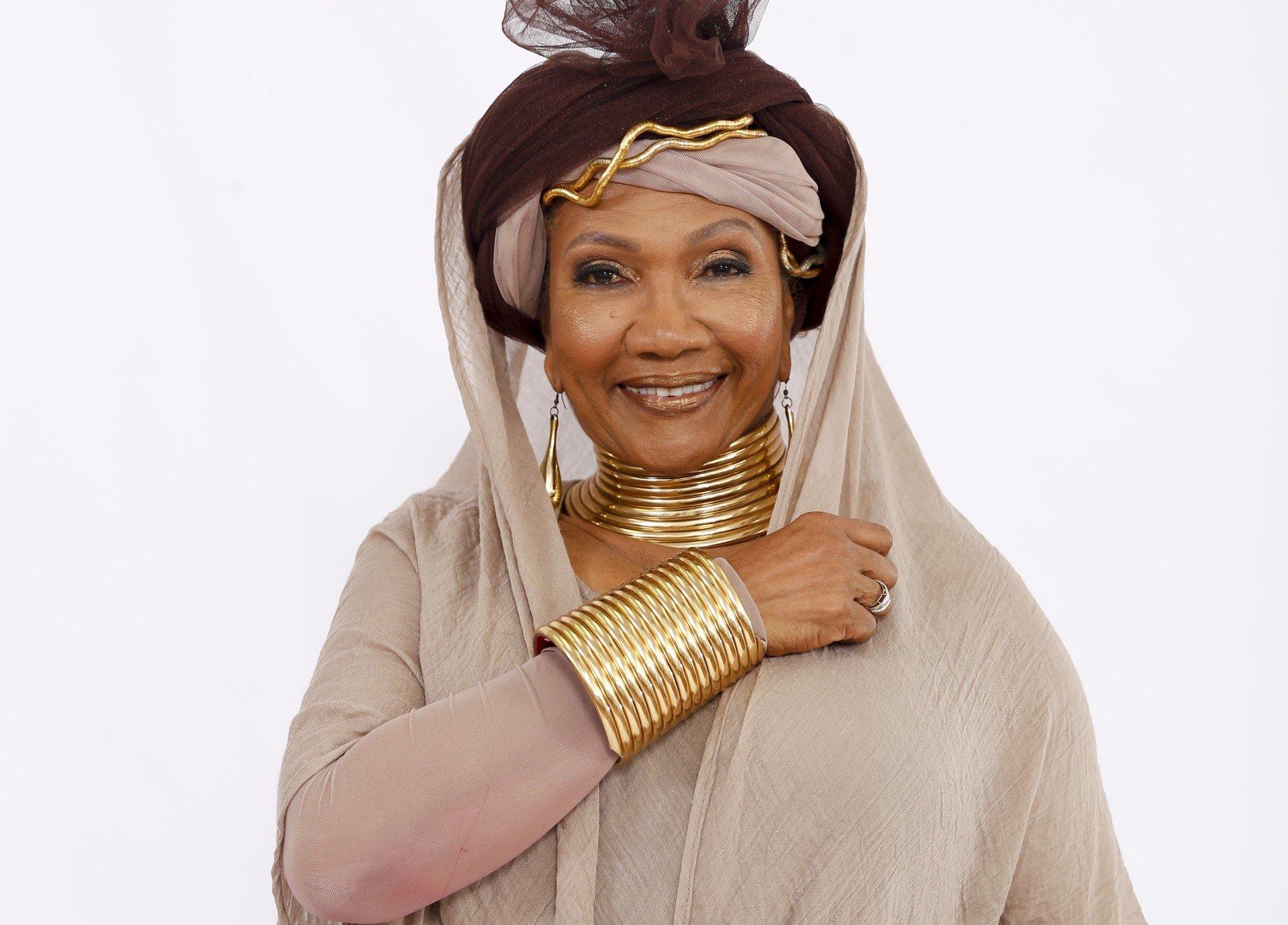When many people think of reggae, one name immediately comes to mind: Bob Marley. The legend is just one of many prominent men—including the late Bunny Wailer and Toots Hibbert—whose voice and production work get major credit for shaping the popular Jamaican genre as well as other sounds of the Caribbean.
The reality is, women have built much of Jamaica’s musical scene. From the freedom sounds of ska to reggae’s conscious lyrics and grooving downbeat—which originated in the late '60s before catching fire worldwide the following decade—to the sexually suggestive, digitized and dubbed out world of dancehall that sprung up in the '80s, women are the largely unheralded backbone of these sounds. Singers Doreen Shaffer (The Skatalites), Patsy Todd, and Millie Small (“My Boy Lollipop”) were among the many women whose vocals appeared on ska records in the early '60s; Phyllis Dillon, Flora Adams, among others, were the voices leading rocksteady; Rita Marley, Judy Mowatt, Jennifer Lara, and Althea and Donna operated at the nexus of reggae and lovers rock, a romantic style of reggae; Lady G, Diana King and Lady Saw pioneered dancehall style. Today, women continue to lead a new generation of artists in reggae and dancehall—Koffee and Lila Iké among them.
In honor of Women’s History Month, GRAMMY.com highlights some of the foundational women who have shaped the sounds of reggae and dancehall as well as spotlights one artist who is taking one of the genres into the future.
Sonia Pottinger: The First Woman Jamaican Record Producer
<style>.embed-container { position: relative; padding-bottom: 56.25%; height: 0; overflow: hidden; max-width: 100%; } .embed-container iframe, .embed-container object, .embed-container embed { position: absolute; top: 0; left: 0; width: 100%; height: 100%; }</style><div class='embed-container'><iframe src='https://www.youtube.com/embed/R9Vv_DWnKx4' frameborder='0' allowfullscreen></iframe></div>
Sonia Eloise Pottinger OD forged her own path just as Jamaica's music industry was developing. Largely considered one of the greatest Jamaican record producers, Pottinger produced legends in ska, rocksteady—predecessors to reggae— and gospel from the mid ‘60s to mid ‘80s via her Gay Feet, Excel, Pep, High Note, and Glory record labels.
With her husband, Lindon Pottinger, she founded multiple labels, a shop and a recording studio which saw artists such as the Maytals, Derrick Harriott and Lord Tanamo come through its doors. Notably, she was the first woman to co-own the first music facility in Jamaica owned and operated by a Black person.
When Pottinger and her husband separated at the beginning of the rocksteady era, she launched her own Gay Feet label to much success. Pottinger’s label hits included the Gaylads’ classic “Hard to Confess” (also on High Note) and “Swing and Dine” by The Melodians. Rocksteady was the precursor to reggae and Pottinger's early successes in this genre set her up as a leading producer. When reggae hit the town, popular singers Delroy Wilson, Judy Mowatt and Ken Boothe came into her orbit, further cementing the credibility of Pottinger and her labels.
However, Pottinger had more than an ear for good tunes. When her good friend and producer Arthur “Duke” Reid died, she acquired his Treasure Isle Records catalog and recording studio. She brought in notable acts—including Justin Hinds and The Dominoes, Bob Andy, Marcia Griffiths, Beres Hammond, and Sly and Robbie—and also licensed Treasure Isle tracks to overseas companies such as the famed Trojan Records. Her foresight, business acumen and ear were instrumental in the worldwide spread of reggae music and her influence has lasted far beyond her death in 2010.
Patricia Chin: The Woman Running The Largest Independent Dancehall And Reggae Label
Reggae singer Tanto Metro and VP founder Patricia Chin in 2004. Photo: Bryan Bedder/Getty Images
At 83 years old, Patricia Chin, aka Miss Pat, has seen quite an evolution of the music that grew from her native Jamaica. For over 40 years, Chin has run VP Records—the legendary shop, distributor and label dedicated to dancehall and reggae. Miss Pat and her late husband Vincent “Randy” Chin founded VP in Queens, New York in 1979 after fleeing political violence in Kingston. Today, VP Records is the world’s largest independent label, distributor, and publisher of reggae and dancehall music, with more than 25,000 song titles—and has the rare designation of being woman-owned and run. (In 2015, Miss Pat became the first woman to win the American Association of Independent Music’s Lifetime Achievement award.) VP has seen generations of reggae come of age and played a crucial role in the development of the genre in New York and beyond.
While Miss Pat and Randy initially tried to push roots reggae to their New York audience, the sound of dancehall took hold because of its similarity to hip-hop. Over the years, VP has helped launch the careers of reggae and dancehall superstars such as Lady Saw, Maxi Priest, Bounty Killer, and Beenie Man. Yet Chin’s roots are even deeper. Back in Kingston, Miss Pat and Randy operated the popular record store Randy's Records, distribution company and recording studio beginning in the late ‘50s. Chin held sessions with Bob Marley, Bunny Wailer and many other prominent musicians at the intersection of ska, rocksteady and reggae. She also pioneered the compilation album in an otherwise singles-focused market.
In her memoir Miss Pat: My Reggae Music Journey, Chin details VP’s story as well as her tales of growing up Chinese and Indian in Jamaica where she dealt with discrimination in the music business and many personal woes. In Miss Pat, hip-hop founding father DJ Kool Herc makes a comparison that puts Chin’s influence into perspective: “What Berry Gordy was to Motown, Patricia Chin is to VP Records and the reggae industry.”
Marcia Griffiths: The Empress Of Reggae
<style>.embed-container { position: relative; padding-bottom: 56.25%; height: 0; overflow: hidden; max-width: 100%; } .embed-container iframe, .embed-container object, .embed-container embed { position: absolute; top: 0; left: 0; width: 100%; height: 100%; }</style><div class='embed-container'><iframe src='https://www.youtube.com/embed/UjHvLwee-CQ' frameborder='0' allowfullscreen></iframe></div>
Legendary singer Marcia Griffiths has one of the lengthiest careers in reggae, gracing stages since 1964. One of the most popular women singers, Griffiths' gorgeous vocals featured on records in ska, reggae, rocksteady, and dancehall styles. Griffiths first sang with ska group Byron Lee and the Dragonaires before recording duets with Tony Gregory, Bob Andy and Bob Marley, among others, for Studio One label owned by Coxsone Dodd. Her first No. 1 single, the rocksteady to reggae “Feel Like Jumping,” was released in 1968. Two years later she’d score an international hit by partnering with Bob Andy for a reggae cover of “Young, Gifted and Black.”
In 1974, Griffiths, Rita Marley and Judy Mowatt formed the I-Three, singing backup for Bob Marley (reggae historian Roger Steffens posits that Griffiths recorded all the back-up vocals Exodus). The I-Three released music after Bob Marley passed, and Griffiths continued to produce records as a solo act. Her 1983 single “Electric Boogie” (written by Bunny Wailer) was a massive hit and its remix inspired the dance we know today.
“Promoters and producers did as they liked–made passes at you and ripped you off at the same time,” Griffiths told The Montreal Gazette, but her golden voice and tireless ethic kept the singer going. “Griffiths' versatility and knack for choosing interesting collaborators ensured her relevancy well into the 21st century,” Steffens wrote in a biography, noting that the singer continues to record and tour internationally. To date, Marcia Griffiths has over 15 albums to her name and has worked with Shaggy, Buju Banton, Cutty Ranks, and Toots and The Maytals. In 2014, she received the Jamaican Order of Distinction for her contributions to reggae music.
Sister Nancy: The Bam Bam Dancehall Queen
<style>.embed-container { position: relative; padding-bottom: 56.25%; height: 0; overflow: hidden; max-width: 100%; } .embed-container iframe, .embed-container object, .embed-container embed { position: absolute; top: 0; left: 0; width: 100%; height: 100%; }</style><div class='embed-container'><iframe src='https://www.youtube.com/embed/AuupPbyDs7s' frameborder='0' allowfullscreen></iframe></div>
It’s highly unlikely that you haven’t heard Sister Nancy’s 1982 dancehall crusher “Bam Bam”–either in its entirety or sampled by another artist. Yet Nancy (born Ophlin Russell) did more than just create a hit; she truly broke the mold by becoming the first woman dancehall DJ when she was still a teenager and dominating Kingston’s mostly male sound system culture.
“People discourage you. They tell you that you're not good,” Sister Nancy told The Fader. “It wasn't for them to tell me that. I just knew this is what I wanted to do and I'm not gonna stop.” Sister Nancy’s debut record, One Two, was released in 1982 and while a few of its tracks were popular in Jamaica, “Bam Bam” truly took flight. The tune was allegedly first played in New York by DJ Afrika Bambaataa and has since become the most sampled reggae song of all time–including by Kanye West and Jay-Z. Yet, because the song was credited to producer Winston Riley, Sister Nancy received no compensation for her hit.
Nancy moved to the States in 1996 and worked as an accountant. Thirty-two years after she recorded the song, Nancy heard “Bam Bam” used in a 2014 Reebok commercial and sued. She was paid for 10 years of royalties and given 50 percent rights to her original album as well as publishing credits. With money in hand, Sister Nancy quit her job and started performing all over the world.
Sevana: The Next Generation Inna Style
<style>.embed-container { position: relative; padding-bottom: 56.25%; height: 0; overflow: hidden; max-width: 100%; } .embed-container iframe, .embed-container object, .embed-container embed { position: absolute; top: 0; left: 0; width: 100%; height: 100%; }</style><div class='embed-container'><iframe src='https://www.youtube.com/embed/x-yeBrtOeek' frameborder='0' allowfullscreen></iframe></div>
Thirty-year-old Jamaican singer/songwriter Sevana melds reggae, lovers rock and R&B to create a standout sound among the current generation of reggae and dancehall artists. She is one of today’s most influential singers, broadening the interpretation of reggae and dancehall genres for a wider audience, recontextualizing the genres through personal lyrics and a unique pop sensibility. With a warm vocal range that swings from mango sweet to dancehall sex appeal, Sevana has a serious crossover appeal without losing a hint of authenticity.
Sevana first arrived on Jamaica's national stage when her girl group, SLR, won third place on the country’s version of American Idol. In 2014, she collaborated with fellow reggae singer Protoje, becoming part of his In.Digg.Nation collective. Sevana released a six-track EP in 2016, and followed with a sophomore effort, Be Somebody, in 2020. Backed by a six-piece band, Sevana’s latest is a groovy meditation on love, loss and faith. “My greatest inspiration has been my lived experiences,” she told Hypebae. “Looking back at all I’ve overcome, I still manage to be high functioning and it makes me feel unstoppable.”

















